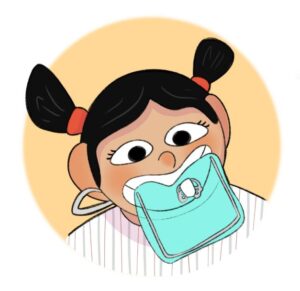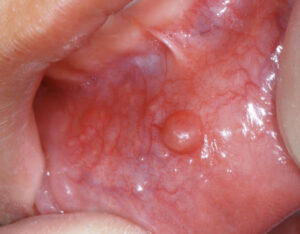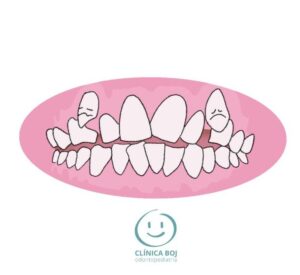Can children have hypersensitivity in healthy teeth?
What is sensitive teeth in children?
Without doubt, hypersensitivity can be a serious problem for the entire population affecting quality of life. However, it can be even more frustrating for children because they are often unaware of the cause of their discomfort.
Sometimes, children and teenagers are not able to define it well. Hence, they may express in different ways that their teeth are sensitive, even when they suffer from occasional sharp pain.
Many times, parents know about this problem when their kids complain due to drinking, eating or brushing their teeth. Other times, it appears in a spontaneous manner.
Thus, answering the question of the title of this post: children can indeed have hypersensitivity. For sure, childhood is not the life span when is most common to find teeth sensitivity. Early adulthood, the period between 20 and 40 years, is when this problem is more frequent.
How do you fix dentin hypersensitivity?
First of all, it is necessary to try to know the reason for the presence of dental sensitivity. This process is vital in order to try to reduce the sensitivity of the teeth. Also, the application of soft lasers may help whatever the cause of the dental discomfort is.
In general, tooth sensitivity occurs when the enamel that protects the teeth loses thickness, or when the gums recede.
Explicitly, the hydrodynamic theory to explain dentin hypersensitivity is supported by many pediatric dentists. Supports that hypersensitivity appears when dentinal tubules become exposed, being the most frequent cause gingival recession and enamel wear.
To end, it can also appear due to a natural maturation process of the immature enamel and/or dentin tissues, after teeth eruption. Our job is to identify the origin and solve the problem of sensitive teeth.
Can tooth sensitivity be the symptom of something else?
In most cases, due to the wear of the dental enamel and the exposure of the dentin, either by:
(a) Grinding the teeth. Tooth tissues, enamel and dentin, become worn out little by little, until finally getting the teeth sensitive. A mouth guard at night could be recommended.
(b) Using the toothbrush in an incorrect manner, normally, pressing too hard. A soft-bristled toothbrush is the best option in these cases. Children and teenagers should brush in a gently manner and never with a hard and fast stroke.
(c) Getting used to the consumption of acidic foods and drinks.
(d) After some recent dental treatments tooth sensitivity may be possible, usually temporary sensitivity.
(e) After tooth whitening dentine hypersensitivity may also appear. The products used for it can contribute greatly to tooth sensitivity. The pediatric dentist has to advice the families and patients about the safest way for whitening teeth.
How to get rid of sensitive teeth in children?
The cause of dental hypersensitivity is also sometimes caused by gum recession. This recession generates a partial exposure of the root of the tooth. For sure, exposing cement tissue of the tooth (very sensitive), causes teeth to be more susceptible to cold and heat.
Particularly, this is a major problem that is difficult to solve. An early visit to the pediatric dentist is important. He/she can explain the best oral hygiene technique and indicate the appropriate toothpaste.
However, sometimes it will require covering the exposed root by gum recession, with a surgical technique of palatal grafting.
How to treat tooth sensitivity in children?
Depending on its origin, or causes mentioned earlier, there are different treatment options for tooth sensitivity in children and young people:
Dental fissure due to trauma.
Undoubtedly, another possible origin of tooth sensitivity is the presence of incomplete cracks in the tooth that are not visible. When a tooth has been affected and damaged by a blow, fissures may have been produced in the tooth enamel. In these cases, it is necessary to diagnose the problem and treat the cause of the sensitivity.
Besides, chipped and cracked teeth may produce tooth discomfort. Filtration may occur through enamel fisures and dentinal tubules.
Subsequently, if a trauma or its complications is the case, we will implement the treatment of the corresponding type of traumatism.
Symptoms of dental nerve infection
Furthermore, other options are exposure of the dental pulp or the presence of infection/inflammation of the nerve of the tooth. Nevertheless, the dental pulp does not necessarily have to be exposed.
However, progressive pulp distress can occur with lesions close to the nerve, gradually degrading the pulp. Eventually, this may lead to necrosis (dead nerve, dead pulp). Throughout this process, tooth sensitivity may also appear.
Specifically, if this is the origin, the treatment will be the removal of the affected pulp tissue or root canal.
Also, a root canal may be the only option even when we do not have pulp infection. Afterwards, it will eliminate intense pain when other treatment options have not showed effectiveness.
Due to tooth decay between teeth
However, there may also be caries between teeth that are not visible, and can cause tooth sensitivity. For this specific case, it is very useful to clean between the teeth with dental floss. Correspondingly, bitewing radiographs are the ones indicated for detecting decay between teeth.
Moreover, children may develop sensitivity also for caries in the occlusal surface that can produce sensible teeth. Fortunately, this type of caries are easy to see when we check the child´s mouth.
Hence, if caries is the origin, after detecting it, we will treat it and dental sensitivity will cease to exist.
Other causes
Furthermore, gingivitis (gum disease or inflammed gingiva) may cause sensitivity. Good oral hygiene is needed.
Eventually, if the cause is gingival recession, we will perform a surgical treatment with a gum graft. Recession is a gum disease where we find a loss of gum tissue.
Without doubt, children need to keep their teeth very clean. Plaque build up in the exposed root area facilitates sensitivity. Sometimes, we may try to solve the problem by bonding resin to the exposed root surfaces.
Finally, we will mention tooth sensitivity of unknown cause in which we do not find a known cause to explain it.
Toothpaste and sensitive teeth
Generally, special toothpastes are indicated, as they help diminish sensitivity and teeth pain. Some are found over the counter, while for others a prescription is needed.
Without doubt, toothpastes containing potassium nitrate are also used to alleviate sensitivities. Potassium nitrate stops sensitity.
By all means, fluoride helps to reinforce the enamel and makes it more resistant to enamel wear. At the same time, it diminishes the pain in sensitive teeth.
Additionally, in the pediatric dental office, we will be able to apply topical fluoride gel at high concentrations of fluoride.
Final remarks on teeth sensitivity
In conclusion, it is important for a child or adolescent suffering from hypersensitivity to visit a children’s dental clinic asap.
Certainly, every patient will have a different immune response of dental tissues towards “dental aggressions”. Obviously, every immune system responds forming immune complexes that are not exactly the same for each child.
In any case, the pediatric dentist will be able to determine the origin of the discomfort. He/she will suggest the most appropriate treatment approach.
References:








